Young Farmer Aims to be the Middle Chapter in a Farm Legacy
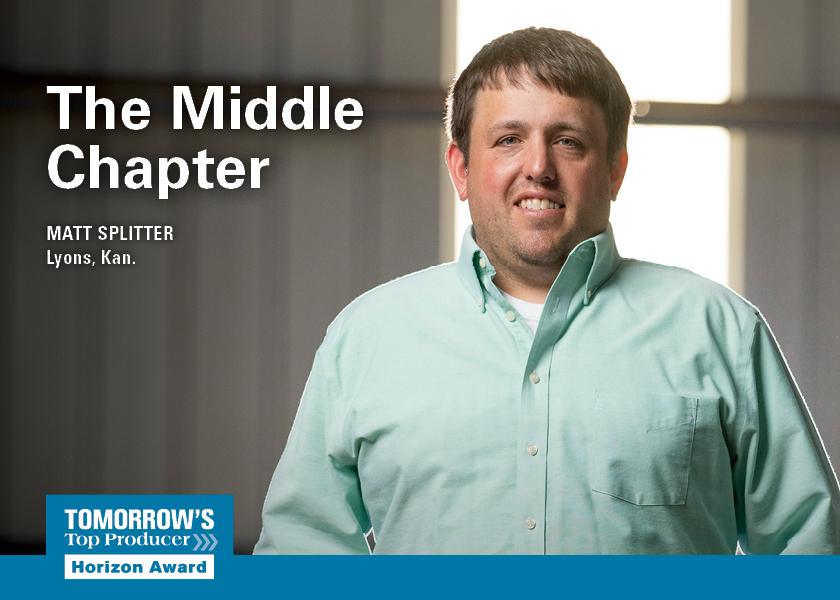
Matt Splitter leads the charge and change to carry forward a legacy
Call it a turning point, moment of truth or divine intervention. In reality, it was a simple question, but what followed was decisive and momentous change.
Matt Splitter from Lyons, Kan., approached fellow producer Lee Scheufler, from nearby Sterling, at a community event in 2015.
“My question was: Why do you plant your soybeans with an air seeder on 7.5" rows?” Splitter recalls. “Lee and his wife, Margaret, are pioneers in no-till and technology on their farm. He didn’t give me an answer. He said ‘I’d like to visit with you further.’”
Unbeknownst to Scheufler, Splitter was in a precarious financial situation due to expanding his asset base just as commodity prices took a nosedive. The young farmer needed education and guidance to lead the charge and change on his farm.
Unbeknownst to Splitter, the Scheuflers were looking for a young family to take over their farm and help them retire. From that first question-and-answer session, the Splitter-Scheufler relationship has grown into a lifelong mentorship and multiyear farm transition.
It was the turning point that allowed Splitter to grow his family’s farming operation from 1,400 acres in 2010 to today’s 7,000 acres of corn, soybeans, wheat and grain sorghum. Add in custom farm work, and the Splitter Farm team covers up to 15,000 acres annually.
A HARD ROAD
Splitter’s ancestors homesteaded on the flat plains of central Kansas in 1878. His father took over the operation in the late 1970s. After college, Splitter faced the challenge so many other young farmers see: a farm not quite big enough to support two families. Instead, he pursued a position with National Sorghum Producers in Texas.
A year later, in 2010, after his father died, Splitter and his wife, Janna, began farming the family’s 1,400 acres. They sowed their first crop in 2011 and saw opportunities to custom farm for neighboring farmers and landowners.
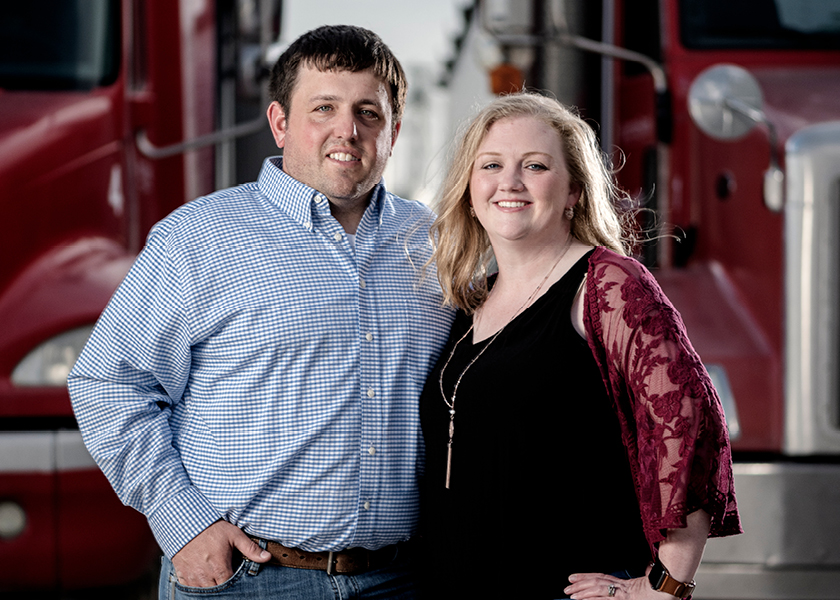
They traded in the family’s aging equipment in order to specialize in no-till and expand custom work. Success followed, and then the markets took a dip.
“Everyone quit hiring out custom work,” Splitter says. “We were stuck with high-priced equipment and no acres to run it over. I remember sitting in my office, and I sold half of our wheat for $2.75, which was way under our cost of production. I had a flood of emotions, knowing that this wasn’t sustainable.”
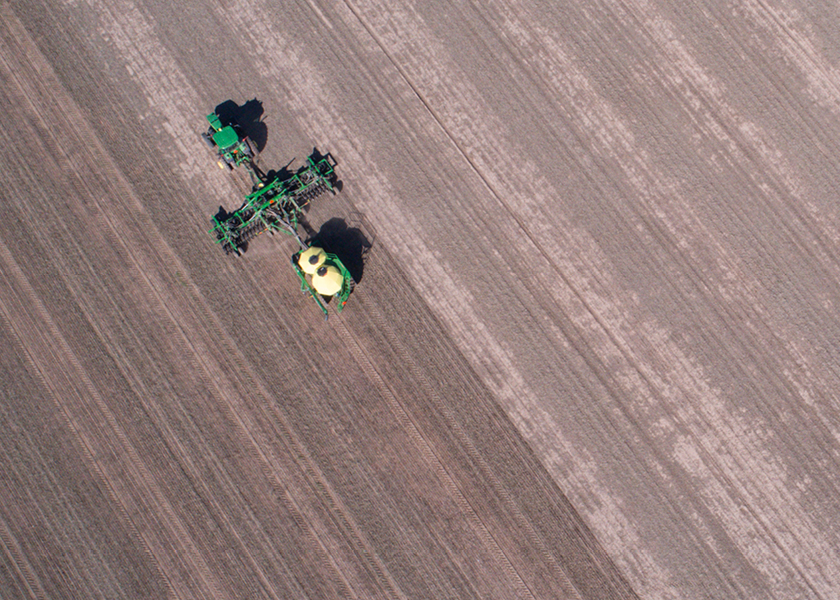
Splitter knew it was time for strategic change on his farm.
“We didn’t have land we could borrow against, and we couldn’t refinance much,” Splitter says. “We took a hard look at our balance sheet and cash flow. I started living by the saying: Wake up in the morning thinking how you will save $1 today, not spend $1.”
The Splitters worked with their lender to set goals and determine financial metrics to monitor.
“They could have turned their back on us because we were a high-risk loan,” Splitter says. “We needed to make cuts and management changes. You can’t outwork your problems.”
Their focus on cost analysis transitioned from the whole farm to the field to the square foot, Splitter says.
“With closer financial analysis and improvements in operational efficiencies, the Splitters have been able to continue growing their
operation,” says John Wempe, branch president of Peoples Bank and Trust. “They analyze how that growth fits their capacity of equipment, labor, working capital and management.”
The focus on finances helped the Splitters rightsize their operation and smartly expand.
“It is notable the operation has been able to continue to operate with the same size operating line with their current acreage as they were with the smaller acreage, making use of small short-term operating loans during peak times when liquidity is stressed,” Wempe adds. “This is indicative of a farm manger focused on operational efficiencies.”
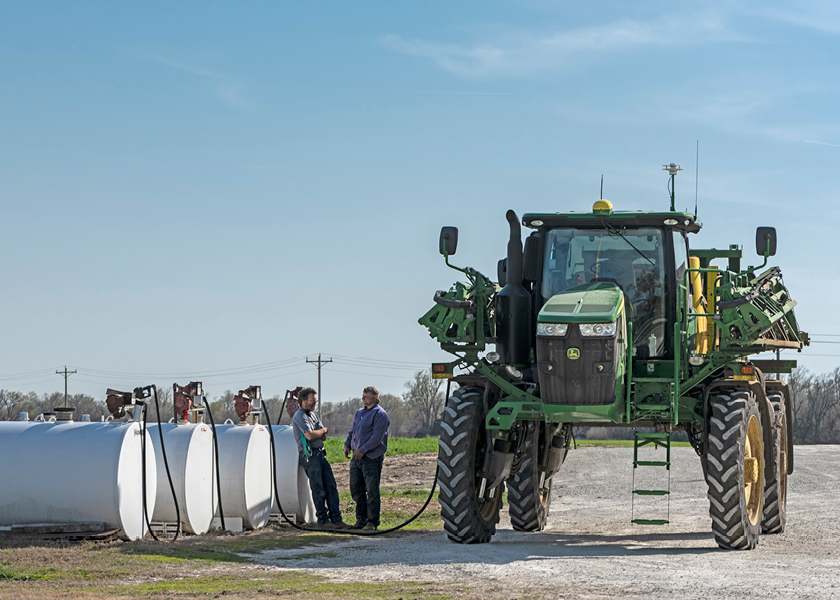
WALK, THEN RUN
The mentorship with the Scheuflers, which began in 2015, formalized to a multiyear transition plan. The first year was focused on exchanging ideas.
“Lee and Margaret never told us how to do something or made us feel bad for the way we were doing something,” Splitter says. “They joke we have taught them just as much as they’ve taught us. In reality, I can never pay them back for their mentorship.”
Two years into the relationship, the Splitters took over the Scheuflers’ rented acres. Splitter says they focused on building relationships with all those landlords and had 100% landlord retention.
“What we have isn’t a formal partnership, we are part of each other’s team,” Splitter says. “The end goal is to get them retired and for us to become a financially sustainable operation we can be proud of.”
2021 marks the first year Splitter is managing his acres plus those owned by the Scheuflers.
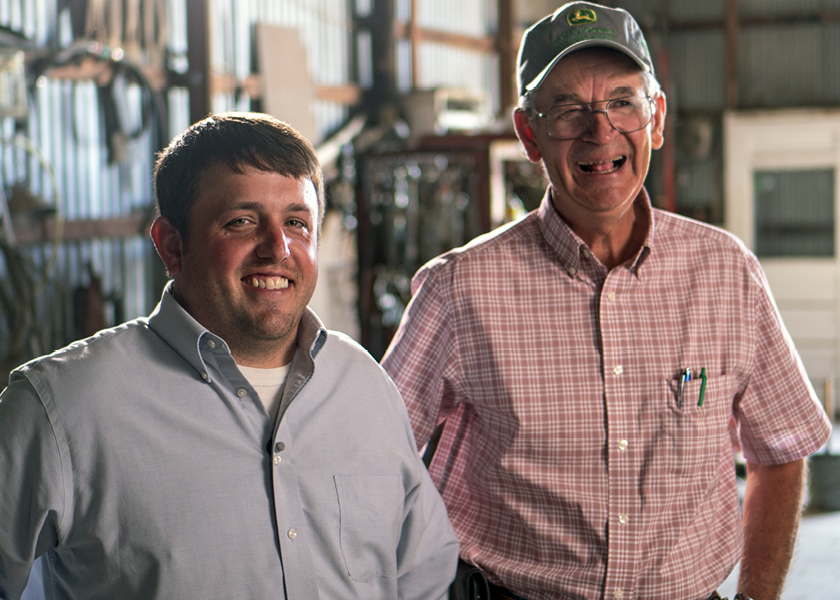
Splitter’s out-of-the-box approach to farming is why he is poised to succeed in farming, says Greg Krissek, CEO of the Kansas Corn Growers Association.
“His willingness to learn from his partner means both families have gained a true win-win opportunity,” Krissek says. “He, his family and partners are constantly making business decisions to add or access technical expertise and human resources for the operation’s success.”
In the past decade, the Splitters have seen immense growth. Their team has grown from a single seasonal employee to nine full-time employees (including the Splitters and Scheuflers) and a handful of seasonal employees.
“We started hiring young employees, thinking we could cover more acres with youthful energy,” Splitter says. “I now hire people who are independent and detail-oriented. Even though I am the owner, I am the third youngest on the team.”
He is quick to compliment his team and defer to their judgment calls. The Splitters host an appreciation event for employees and their families after harvest.

HERITAGE VERSUS LEGACY
The Splitters are focused on building a business that can provide opportunity for their daughters, Laikyn and Landry.
“We want them to see hard work and what it takes to have a business and really involve them as a family, just like we do with our employees and their families,” Janna says.
“A key in our operation is to take what we’ve been given, the opportunity and the assets, make them better, and then give them to the next generation, whether it’s a family member or a family that wants to partner with us,” Splitter adds. “I think there’s a clear distinction between heritage and legacy. Heritage is the assets you can inherit. Legacy is what you did with it.”
It’s this creative and dedicated focus on the future that ensures the Splitters hold an important middle chapter in a long book.
THE POWER OF A MENTOR
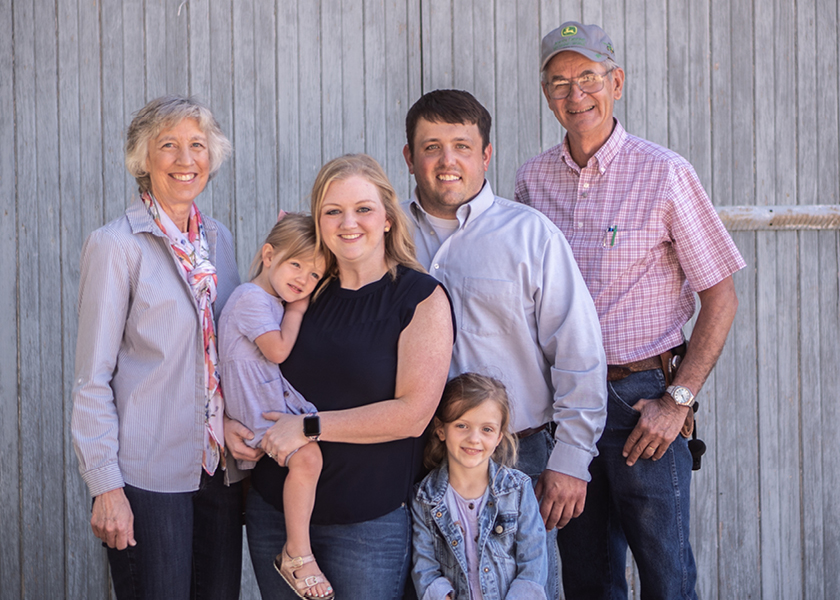
Matt Splitter admits he can never repay Lee and Margaret Scheufler for the mentorship and business opportunities they have provided to his family. Splitter encourages other young farmers to find a mentor.
“Maybe it is your father, grandfather or uncle,” he says. “If that’s not the case, look around your community and find somebody who you respect how they’re handling their business and life.”
To start the conversation, ask the person questions about an area of farming you’re exploring, he suggests.
“Your goal is to find someone who will teach you, not just tell you what to do,” Splitter says.
Listen to Matt Splitter discuss is farming career with Andrew McCrea on the Farming the Countryside podcast:
SNAPSHOT OF SPLITTER FARMS
Operation: Splitter Farms is a fifth-generation row crop operation based in Lyons, Kan., owned by Matt and Janna Splitter. Matt is responsible for managing employees, landlord relations, custom farming, input purchasing and marketing. Janna’s duties include bookkeeping and invoicing, payroll and taxes and farm communications.
Family and Team: The Splitters partnered with Lee and Margaret Scheufler, who still contribute to the operation. The team also includes five full-time and four part-time employees. Matt and Janna have two daughters: Laikyn and Landry.
Custom Farming: The Splitters began custom farming to create cash flow throughout the year. In addition, it helps them build relationships with landowners and neighboring farmers.
Community and Leadership: The Splitters have roles in many local, state and national organizations. Matt is a board member for the Kansas Corn Association and serves on the Federal Communications Commission’s precision ag connectivity task force. The Splitters have hosted more than 10 trade missions on their farm.
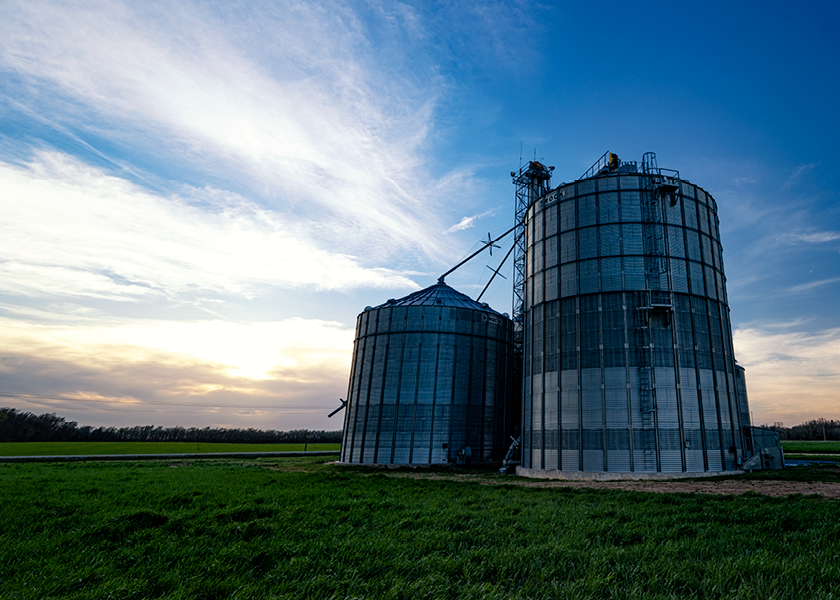
To virtually travel to Lyons, Kan., and learn more about Splitter Farms, visit bit.ly/Splitter-Farms







